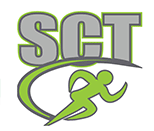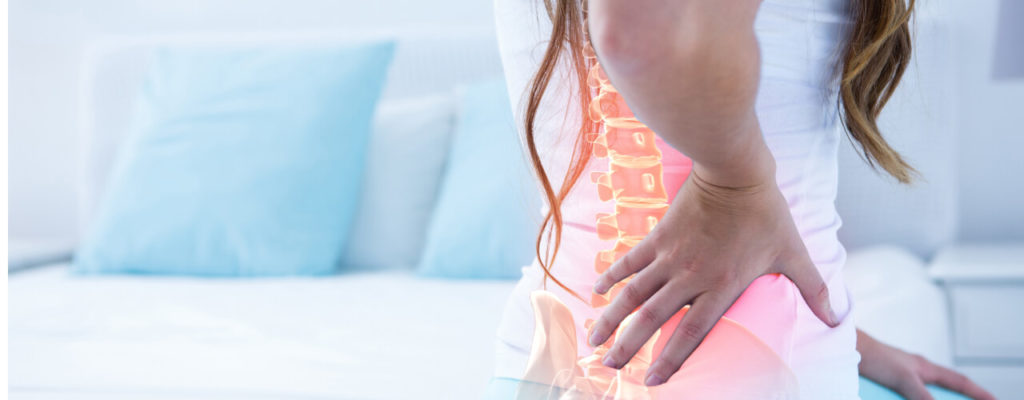One of the most common causes of pain among adults in the United States, back pain can develop for any number of endless reasons, and once it develops it doesn’t always go away all that easily. Because it could be a sign of something more serious, back pain is not something you want to ignore for long.
When you experience pain in your back that hangs around beyond the time that an injury would traditionally take to heal, it is called chronic pain. Chronic pain is estimated to affect 20 percent of U.S. adults, and chronic back pain, in particular, is very stressful and difficult to cope with. This sort of pain can hinder your everyday activities and can interfere with your ability to sleep comfortably, move freely, or to feel energized throughout the day.
Eliminating back pain is difficult to do on your own. Taking over the counter medication isn’t going to help the back pain go away, it will only serve as a temporary solution to a longterm problem. One of the most common causes of back pain is a disc herniation. Thankfully, many sources of back pain can be best addressed through physical therapy.
If you’re experiencing debilitating back pain, call Spa City Physical Therapy today to learn more about how our clinic’s skilled therapists can get you back to feeling your best.
What is a herniated disc?
Although the only way to know for sure if you have a herniated disc in your back is to see a doctor for evaluation, there are a few signs that can help you determine the source of your back pain at home.
A herniated disc develops when the rubbery cushions (or discs) between the vertebrae of the back becomes dislodged or ruptured. When this happens, the bones of the vertebrae along the spine begin to rub against one another, and this can cause severe pain and discomfort.
The most frequent symptoms of a herniated disc include:
- Arm and leg pain. Depending on where the herniated disc develops along the spine, the exact location of where the pain will feel most severe may vary. Pain associated with a herniated disc is frequently shooting pain, and may be most intense after movement, or following a cough or sneeze.
- Leg or grip weakness. A herniated disc will compromise the comfort and strength of your spine, and may also impair your ability to comfortably hold items. You might find that you also stumble more frequently or can’t get your footing under you.
- Numbness and tingling in the back or extremities. Since a herniated disc is along the spinal cord, the development of this pain may cause numbness or tingling throughout other parts of the body associated with the affected nerves.
What can I expect from physical therapy?
The best way to determine if the pain that you are experiencing in your back is the result of a herniated disc is to consult with a physical therapist.
In many situations, a physical therapist will use many different modalities and techniques to determine and treat your condition. They will use a combination of a physical examination and imaging techniques to properly diagnose the cause of the pain, and then will work with you to develop a personalized program of treatment that addresses your particular issues with pain.
Many physical therapy programs for treating back pain associated with a herniated disc include a combination of targeted massage therapy, guided stretching and yoga techniques, and additional pain management strategies like hot and cold therapy.
It’s important to know that your physical therapist will never push you to do anything that causes you pain or physical discomfort. The goal of therapy is to have you feeling better when you leave the clinic than when you arrived, so if there is ever any exercise or stretch that you cannot do comfortably, let your therapist know! They are skilled movement specialists who will be able to assist you in learning new ways to complete the exercises you’re given to make sure you’re reaching your goals.
Ready to get rid of your back pain once and for all?
No one should rely on prescription medication to cope with back pain. If you are struggling with chronic back pain as a result of a herniated disc, then physical therapy may be the most effective form of therapy in alleviating your discomfort. Even if you aren’t sure what the true source of your pain is, your therapist can help. For more information about treating back pain associated with a herniated disc, contact our office today to set up an appointment.
Sources:
- https://www.verywellhealth.com/conditions-most-often-associated-with-chronic-pain-2564563
- https://www.mayoclinic.org/diseases-conditions/back-pain/symptoms-causes/syc-20369906
- https://www.aans.org/Patients/Neurosurgical-Conditions-and-Treatments/Herniated-Disc
Tags: physical therapist, lower back pain, physical fitness, back pain relief, fitness, Physical Health, health and wellness, Spa City Therapy, back pain, Chronic Back Pain, herniated disc, health, physical activity, physical therapy, healthy tips




